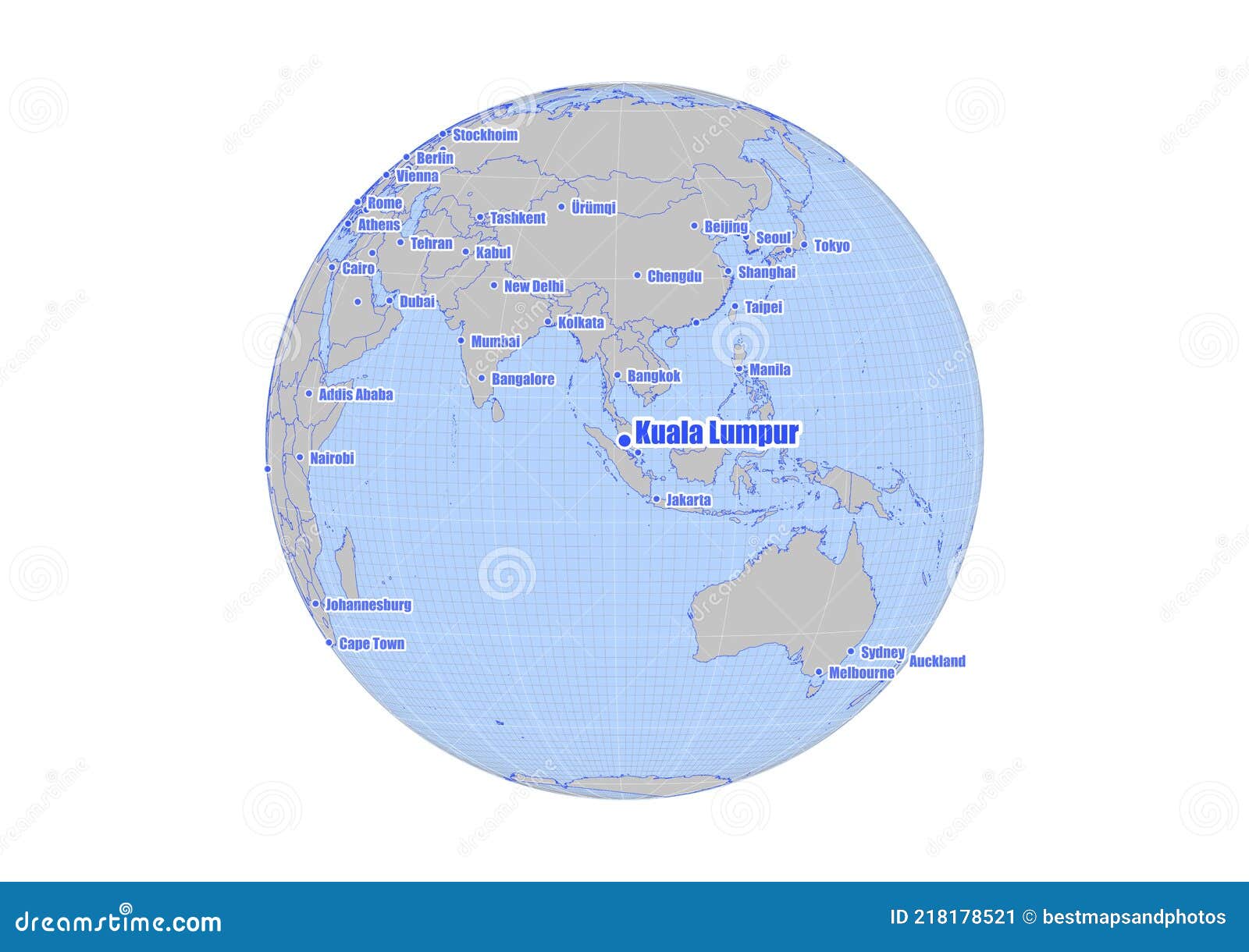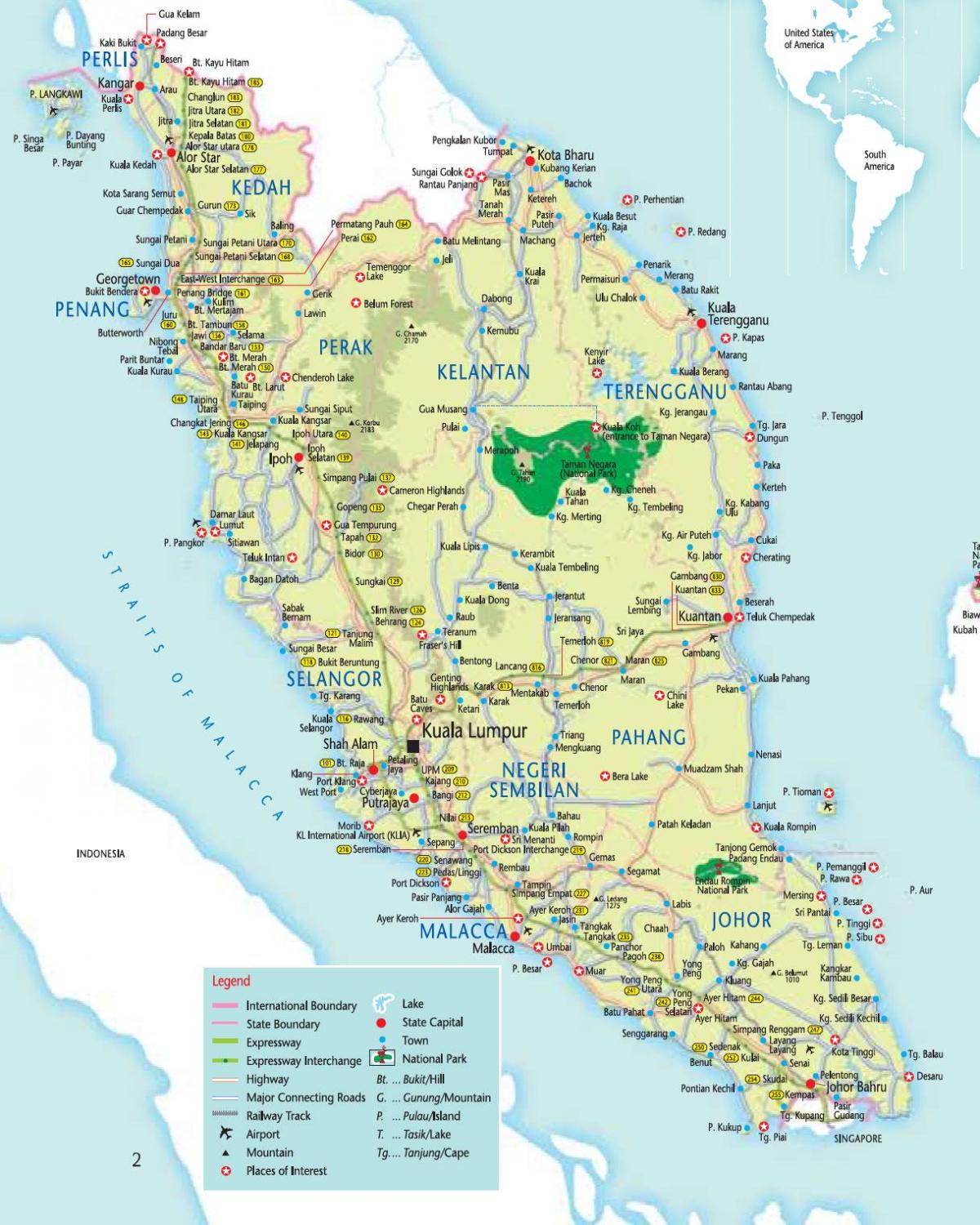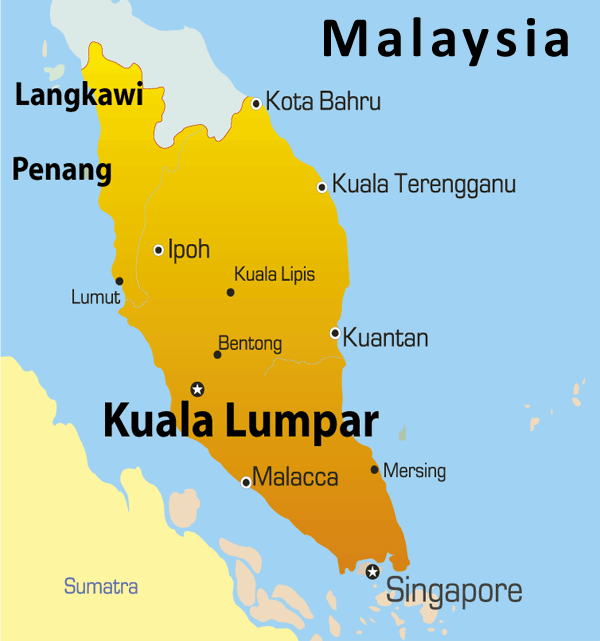Kuala Lumpur: A Global City on the World Map
Related Articles: Kuala Lumpur: A Global City on the World Map
Introduction
With great pleasure, we will explore the intriguing topic related to Kuala Lumpur: A Global City on the World Map. Let’s weave interesting information and offer fresh perspectives to the readers.
Table of Content
- 1 Related Articles: Kuala Lumpur: A Global City on the World Map
- 2 Introduction
- 3 Kuala Lumpur: A Global City on the World Map
- 3.1 A Hub of Economic Growth and Innovation
- 3.2 A Cultural Melting Pot
- 3.3 A Gateway to Southeast Asia
- 3.4 A City Committed to Sustainability
- 3.5 FAQs about Kuala Lumpur
- 3.6 Tips for Visiting Kuala Lumpur
- 3.7 Conclusion
- 4 Closure
Kuala Lumpur: A Global City on the World Map

Kuala Lumpur, the vibrant capital of Malaysia, stands as a testament to the country’s dynamic growth and cultural richness. It is a city that seamlessly blends tradition with modernity, offering a captivating tapestry of architectural marvels, diverse cuisine, and bustling markets. But beyond its immediate allure, Kuala Lumpur holds a significant position on the global map, contributing to the world in various ways.
A Hub of Economic Growth and Innovation
Kuala Lumpur is a major economic powerhouse in Southeast Asia. Its strategic location, robust infrastructure, and skilled workforce attract global investors and businesses. The city is home to numerous multinational corporations, financial institutions, and technology companies, making it a key player in the region’s economic development. Kuala Lumpur’s commitment to innovation is evident in its thriving startup ecosystem, attracting entrepreneurs from around the world.
Key Economic Drivers:
- Financial services: Kuala Lumpur is a leading financial center in Southeast Asia, home to major banks, insurance companies, and stock exchanges.
- Tourism: Kuala Lumpur is a popular tourist destination, attracting millions of visitors annually. The city’s iconic landmarks, vibrant culture, and diverse culinary scene are major draws.
- Technology: Kuala Lumpur is a hub for technology companies, with a growing number of startups and innovation centers.
- Manufacturing: Kuala Lumpur is home to a diverse manufacturing sector, producing electronics, automotive parts, and other goods.
A Cultural Melting Pot
Kuala Lumpur is a city where cultures converge and thrive. Its diverse population, a blend of Malay, Chinese, Indian, and other ethnicities, has shaped the city’s unique identity. This cultural richness is reflected in its cuisine, festivals, and architecture.
Cultural Highlights:
- Petaling Street: A bustling Chinatown known for its street food, souvenirs, and traditional Chinese medicine.
- Little India: A vibrant neighborhood showcasing Indian culture through its shops, temples, and cuisine.
- Kuala Lumpur City Centre: A modern district featuring iconic landmarks like the Petronas Twin Towers and the KL Tower.
- The National Museum: A repository of Malaysian history and culture, showcasing artifacts and exhibits from various periods.
A Gateway to Southeast Asia
Kuala Lumpur serves as a gateway to Southeast Asia, connecting travelers and businesses to the region’s diverse destinations. The city’s well-connected international airport, KLIA, facilitates seamless travel to other countries in the region.
Connectivity and Transportation:
- Kuala Lumpur International Airport (KLIA): A major international airport serving as a hub for airlines connecting to various destinations in Southeast Asia and beyond.
- High-speed rail network: The city is connected to Singapore and other major cities in Malaysia via a high-speed rail network, facilitating faster travel and economic integration.
- Efficient public transportation: Kuala Lumpur boasts a comprehensive public transportation system, including a light rail transit network, buses, and taxis.
A City Committed to Sustainability
Kuala Lumpur is actively pursuing sustainable development, aiming to balance economic growth with environmental responsibility. The city has implemented various initiatives to promote green transportation, reduce carbon emissions, and conserve natural resources.
Sustainability Initiatives:
- Green building standards: Kuala Lumpur has adopted green building standards for new construction projects, encouraging energy efficiency and sustainable design.
- Public transportation promotion: The city is promoting public transportation use to reduce traffic congestion and air pollution.
- Waste management: Kuala Lumpur is investing in waste management infrastructure and implementing recycling programs to minimize waste generation.
FAQs about Kuala Lumpur
Q: What is the best time to visit Kuala Lumpur?
A: Kuala Lumpur enjoys a tropical climate with warm temperatures year-round. The best time to visit is during the dry season, from March to October, when the weather is pleasant and sunny.
Q: What are some must-see attractions in Kuala Lumpur?
A: Kuala Lumpur is home to numerous iconic attractions, including the Petronas Twin Towers, the KL Tower, Batu Caves, and the National Museum.
Q: What is the local currency in Kuala Lumpur?
A: The local currency in Kuala Lumpur is the Malaysian Ringgit (MYR).
Q: What is the official language in Kuala Lumpur?
A: The official language in Kuala Lumpur is Bahasa Melayu. However, English is widely spoken, especially in tourist areas and business districts.
Tips for Visiting Kuala Lumpur
- Plan your itinerary: Kuala Lumpur offers a wealth of attractions, so it’s best to plan your itinerary in advance to make the most of your time.
- Learn basic Malay phrases: Learning a few basic Malay phrases can enhance your interactions with locals and make your trip more enjoyable.
- Embrace the local cuisine: Kuala Lumpur boasts a diverse culinary scene, so be sure to try the local delicacies, from street food to fine dining.
- Be aware of cultural sensitivities: Malaysia is a multi-cultural country, so it’s important to be respectful of local customs and traditions.
Conclusion
Kuala Lumpur is a dynamic city that seamlessly blends tradition with modernity. Its economic prowess, cultural richness, and strategic location make it a significant player on the world map. The city’s commitment to sustainability and its welcoming atmosphere ensure a vibrant future for Kuala Lumpur as a global hub for business, culture, and tourism.
-on-world-map.jpg)







Closure
Thus, we hope this article has provided valuable insights into Kuala Lumpur: A Global City on the World Map. We appreciate your attention to our article. See you in our next article!